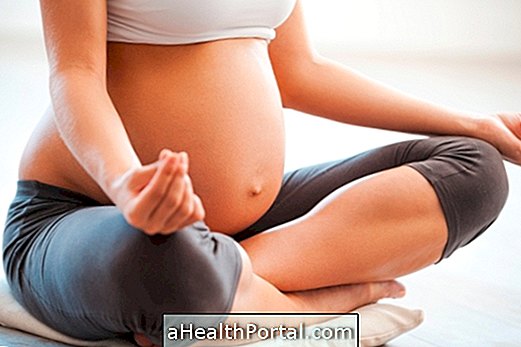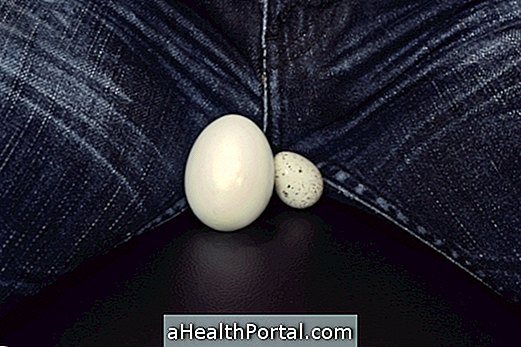The pregnant woman should do at least 30 minutes of exercise a day and at least 3 times a week to keep fit during pregnancy, send more oxygen to the baby, prepare for childbirth and facilitate recovery after childbirth
Another 5 good reasons to exercise in pregnancy include the fact that exercise helps:
- Relieving or preventing back pain ;
- Decrease swelling of legs and feet;
- Reduce the risk of gestational diabetes ;
- Reduce the risk of hypertension in pregnancy that can lead to a condition called preeclampsia;
- Decrease your chances of getting too fat during pregnancy. Here's how many pounds you can put on: How many pounds can I put on weight in pregnancy?

In addition, the pregnant woman who practices exercise has more energy and mood, sleeps better at night and gets more muscular strength, flexibility and endurance.
Exercises in pregnancy should always be guided by a physical educator and obstetrician and do not harm the baby when the pregnant woman practices low intensity exercises that are recommended during pregnancy such as walking, pilates, muscle training, swimming or yoga.
When to start exercise in pregnancy
Physical exercise in pregnancy can be done from the beginning of pregnancy, however, before starting the exercises, the pregnant woman should consult the obstetrician, as in some cases, the practice of physical exercise is not recommended as in case of heart problems or vaginal bleeding, or risk of preterm birth.
After the obstetrician releases the practice of exercises, the pregnant woman should have some care such as:
- Always stretch before and after exercises. Learn more at: Stretching exercises in pregnancy;
- Drink lots of fluid to stay hydrated during exercise;
- Avoid overheating .
In addition, if the pregnant woman did not exercise before pregnancy, she should start with only 10 minutes of exercise a day, increasing until she reaches at least 30 minutes a day. If the pregnant woman already exercised before getting pregnant, she can continue to exercise at the same level, as long as she feels comfortable and the doctor or physical educator agrees.
What exercises can the pregnant woman do
A great exercise for pregnant women is walking as it provides moderate aerobic conditioning with minimal stress on the joints. Other good options include weight training and more repetitions, pilates and yoga. Find out the best exercises to practice in pregnancy.
On the other hand, exercises such as diving, ice hockey, soccer, basketball, gymnastics, water skiing, surfing or horseback riding are not recommended because of the risk of complications or falls.
See a good walking workout for pregnant women.
When to stop exercising during pregnancy
The pregnant woman should stop exercising and consult the obstetrician when:
- Vaginal bleeding or discharge from an intimate fluid;
- Dizziness;
- Headache;
- Increased shortness of breath;
- Chest pain;
- Irregular or rapid heartbeat;
- Uterine contractions that continue after rest;
- Decreased baby's movements.
In the presence of these symptoms, the pregnant woman should consult the obstetrician or go to the emergency room for evaluation and, if necessary, receive appropriate treatment, which may involve rest and absence of physical exercise.
In addition to practicing physical exercise, see 10 foods that pregnant women should not eat to ensure their health.





















